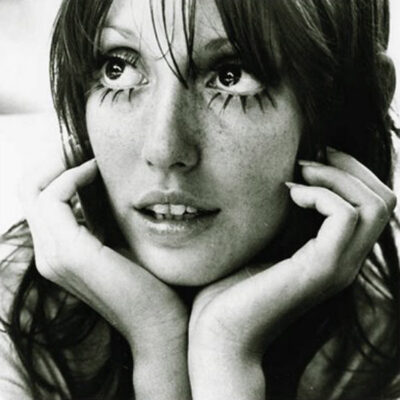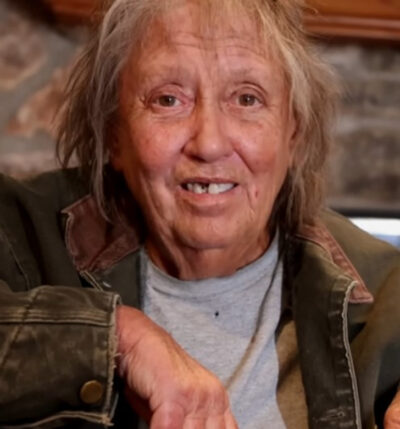Shelley Duvall was perhaps the prototypical example of a quirky actress. She had an appearance that more than one person has described as funny looking, and a sex appeal that might be called unconventional—something that was certainly noted during her heyday, with her role in Robert Altman’s 3 WOMEN (1977) predicated on the fact that her character believes men are hot for her when in fact (as is bluntly maintained throughout the film) they aren’t. Hollywood ultimately discarded her, but in her peak years, the 1970s and 80s, Duvall made a mark.
3 WOMEN, 1977 (Trailer)
You simply won’t find a better choice, then or now, for the role of Keechie in THIEVES LIKE US (1974), or Millie Lammoreaux in the abovementioned 3 WOMEN, with Duvall fully inhabiting those parts from the inside out. Another notable Duvall role was Olive Oyle in Altman’s much-maligned POPEYE (1980). Full disclosure: I’m among the small circle of admirers of that 1980 “flop” (a $60 million gross against a $20 million budget ain’t a flop), and Duvall’s performance was a key component of its (yes) success.
POPEYE 1980 (Trailer)
She’s stronger, in fact, than Robin Williams was in the title role, nailing the overtly cartoonish tone while imparting a humanity that’s anything but cartoony. Duvall also proved herself a skilled crooner (in a film that’ not renowned for its great music numbers) with her famous rendition of “He Needs Me,” which was memorably replayed in Paul Thomas Anderson’s PUNCH-DRUNK LOVE (2002).
PUNCH DRUNK LOVE, 2002 (Trailer)
The fact that Duvall was discovered by Robert Altman (for 1970’s BREWSTER McCLOUD), and made a regular in his 1970s-era films, solidified her cool points with cineastes. Of course, she and Altman had a falling-out, (as seemed to occur with nearly all his favored cast members), with Altman shirking Duvall and fellow seventies-era regulars like Geraldine Chaplin and Karen Black in favor of Kim Basinger, Julia Roberts and Liv Tyler. I say that was a misstep on his part, because Duvall added a great deal to his early films.
The Showtime series FAERIE TALE THEATRE (1982-87), which Duvall hosted and executive produced, proved her talents weren’t confined to the acting sphere. It wasn’t a great show, but I enjoyed watching it was a kid; as I recall, I particularly liked the “Snow White and the Seven Dwarfs” episode, which added a dwarf named “Bubba” and succeeded in updating the tale for a modern audience (or at least a modern kid audience) better than any of today’s attempts at similar updatings.
FAERIE TALE THEATRE: SNOW WHITE AND THE SEVEN DWARFS, 1982 (Full episode)
It’s sad that Duvall never had a multi-film actor-director collaboration like the one she had with Altman, although she was a sought-after name among filmmakers. Note how in the nineties her most notable film roles came about due to the insistence of strong-willed (and apparently nostalgic) auteurs like Steven Soderbergh (in THE UNDERNEATH), Jane Campion (PORTRAIT OF A LADY) and Guy Maddin (TWILIGHT OF THE ICE NYMPHS).
Speaking of auteurs, let’s talk about Duvall’s most famous role: Wendy Torrance in THE SHINING (1980). The direcor was Stabley Kubrick, who in casting Duvall went against the character description in Stephen King’s source novel (in which she was described as a hot blonde). His onset treatment of her has been the subject of a lot of discussion; see Vivian Kubrick’s ARENA documentary MAKING THE SHINING, which contains more than one instance of Kubrick berating Duvall, for evidence of how hard he pushed his leading lady. Co-star Jack Nicholson, speaking at a 1994 FANGORIA convention, expressed admiration for Duvall’s ability to hold up on that production, in which Kubrick at one point subjected her to 127 takes. Duvall won a (later withdrawn) Razzie award for her performance in THE SHINING, but I say it’s one of the screen’s premiere depictions of sustained hysteria.
Duvall’s later years, in which she quit Hollywood altogether (outside the 2023 horror indie THE FOREST HILLS) in favor of her Ft. Worth, Texas birthplace, have been the subject of much discourse (the gist: she didn’t do too well). Still, in the face of increasing problems both mental and physical, Duvall made scattered media appearances in which she maintained an upbeat demeanor. Whether she would have succeeded in mounting the late period career comeback she portended to an interviewer—pointing out that Jessica Tandy was granted an Oscar at age 80, so “I can still win”—had she not been sidelined by health problems remains an open question. Ultimately I say what Shelley Duvall accomplished in her earlier years is reward enough, for her and us.




